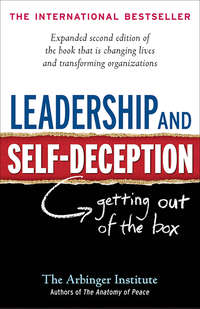Kitobni fayl sifatida yuklab bo'lmaydi, lekin bizning ilovamizda yoki veb-saytda onlayn o'qilishi mumkin.
«Leadership and Self-Deception. Getting out of the Box» kitobidan iqtiboslar

For too long, the issue of self-deception has been the realm of deep-thinking philosophers, academics, and scholars working on the central questions of the human sciences. The public remains generally unaware of the issue. That would be fine except that self-deception is so pervasive that it touches every aspect of life. “Touches” is perhaps too gentle a word to describe its influence. Self-deception actually determines one’s experience in every aspect of life. The extent to which it does that – and in particular the extent to which it determines the nature of one’s influence on, and experience of, others – is the subject of this book. To give you an idea of what’s at stake, consider the following analogy. An infant is learning how to crawl. She begins by pushing herself backward around the house. Backing herself around, she gets lodged beneath the furniture. There she thrashes about, crying and banging her little head against the sides and undersides of the pieces. She is stuck and hates it. So she does the only thing she can think of to get herself out – she pushes even harder, which only worsens her problem. She’s more stuck than ever.
